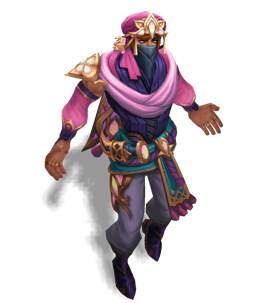Coaching in League of Legends is no longer a niche pursuit reserved for professional organizations. As the competitive ecosystem has matured, so too has the demand for knowledgeable mentors who can guide players and teams through structured learning, analysis, and strategy.
A good coach blends game knowledge, communication, leadership, and psychology, transforming mechanics-focused players into cohesive, resilient squads.
What Does a League of Legends Coach Do?
A League coach’s role stretches far beyond offering quick in-game tips. Their core responsibility is to analyze gameplay—reviewing VODs, scrims, and live matches to identify strengths, weaknesses, and recurring patterns. From there, they design training regimens, tailor strategies to the team’s champion pool, and encourage tactical flexibility.

Equally important is the human element: coaches mentor their players, creating a safe environment for feedback and growth. They set performance goals, manage expectations, and often serve as mediators when personalities clash. In short, a coach is both strategist and mentor—someone who balances hard analysis with interpersonal leadership.
Building Effective Practice and Communication
Successful League coaching depends on structure. Coaches organize scrims against other teams, implement review sessions to break down mistakes, and build consistent routines so players develop habits of improvement.
Communication is the glue that holds it together. Coaches must:
- Foster in-game communication so players coordinate effectively.
- Guide discussions after matches, ensuring criticism is constructive.
- Teach clarity around roles, game plans, and objectives.
The best coaches also know when to step back—allowing players to problem-solve and adapt independently, which develops autonomy and sharpens decision-making under pressure.
Meta Analysis and Strategic Preparation
Another cornerstone of coaching is meta awareness. League of Legends is constantly evolving, and successful teams adapt faster than their competition. Coaches study tournament drafts, high-elo solo queue, and patch notes to stay ahead of trends.
Their tasks often include:
- Designing draft strategies that leverage players’ champion pools.
- Teaching counter-picks and win conditions.
- Building playbooks for different map states and objectives.
- Assigning roles in strategic execution, from shotcalling to vision control.
This preparation allows teams to enter matches with confidence and flexibility, tailoring strategies not only to their strengths but also to opponent weaknesses.
Psychology and Team Culture
Technical skills alone rarely win championships. The best League coaches understand the psychological side of competition. They encourage positivity, resilience, and mutual respect, helping players cope with tilt, setbacks, and high-pressure situations.
Key aspects of coaching culture include:
- Promoting a growth mindset, where mistakes fuel progress.
- Creating a safe space for open feedback.
- Managing conflict before it escalates.
- Ensuring every player feels valued within the team.
When trust and morale are high, players communicate more freely and perform with greater consistency.
Final Thoughts
Coaching in League of Legends is both an art and a science. It requires the tactical acumen to break down metas and design strategies, but also the leadership to unite a group of individuals into a team that can weather adversity.
Whether in grassroots communities, amateur circuits, or the professional stage, effective coaches are shaping the way League is played—turning raw talent into competitive success.
Written by:
Christian


